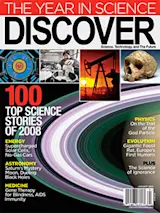Brain imaging studies seem so simple and elegant: Hook someone up to a functional MRI (fMRI) machine, which measures blood flow; see which parts of the brain light up; and identify regions associated with love, rejection, etc. But in a forthcoming paper [pdf], psychologist Hal Pashler of the University of California at San Diego and his colleagues challenge the validity of broad claims that come from these studies. The authors charge that shoddy statistics and noisy measurements are leading to gross overestimations of the correlation between brain activity and emotions.
Neuroscientists are rushing to defend their techniques. William Cunningham, a psychologist at Ohio State University who conducts research using fMRI, says that the paper makes important points but “takes its argument a little too far.” Even if the strengths of the correlations are sometimes inflated, he says, in most cases the basic relationships found are real.
At the very least, though, Pashler’s paper [pdf] illuminates pitfalls in the interpretation of fMRI scans. In an interconnected network of billions of neurons, it is unlikely that any single brain region is responsible for an experience—even if media coverage touting the “love center of the brain” suggests otherwise. Cunningham maintains that fMRI is gradually helping scientists make sense of the human mind, but he admits that “there’s a tendency for the data to be oversold, so it ultimately doesn’t live up to the hype.
Social neuroscientist Matthew Lieberman is publishing a formal response disagreeing with the Pashler paper [pdf], and both Ed Vul (the lead author of the original paper) and Lieberman have brought their viewsto
Scientific American, as well.














